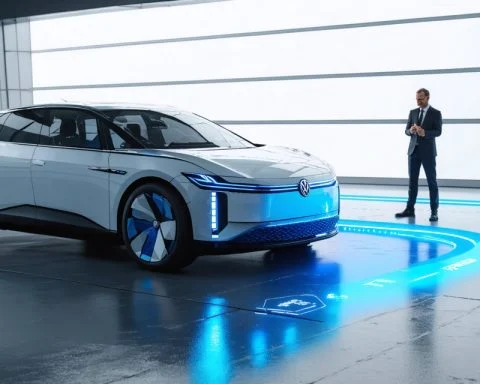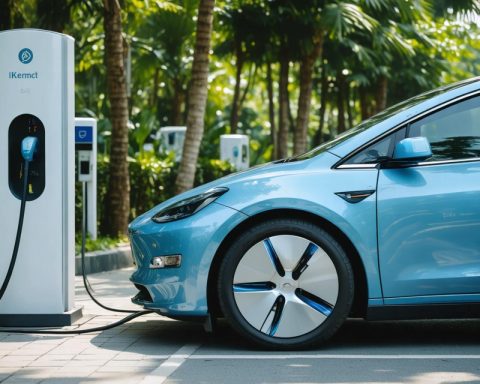The automotive landscape in the UK is on the brink of a major evolution, as forecasts from Cox Automotive indicate a substantial rise in electric vehicles (EVs) within the next five years. By 2028, it is anticipated that nearly 28% of all new vehicle registrations will be attributed to EVs, which signifies a remarkable increase from previous years, amounting to approximately 2.3 million EVs.
Hybrid vehicles are also expected to see significant growth, with projections suggesting they will make up 25% of new registrations, translating to about two million units sold. In stark contrast, traditional petrol and diesel cars are predicted to face a sharp decline. By 2027, diesel vehicles are expected to dwindle to a mere 3% of the market, while petrol vehicles could drop to 35%, representing a dramatic shift in consumer preferences.
The evolving vehicle composition signifies a broader trend, with EVs and hybrids steadily gaining traction since 2016. Internal combustion engine (ICE) vehicles have experienced the most significant decline, with market share plummeting to 71% from 95%. Projections indicate that by 2027, only 784,000 new ICE vehicles may be registered, down from 1.2 million in 2023.
As legislation continues to steer the market, the implications for both consumers and retailers are profound, paving the way for a future dominated by alternative fuel technologies.
Embracing the Electric Revolution: Tips, Hacks, and Facts
As the UK automotive industry rapidly evolves towards electric and hybrid vehicles, it’s essential for consumers, dealers, and enthusiasts to stay informed and adapt to these changes. The anticipated rise in electric vehicles (EVs) and hybrids presents a range of opportunities, challenges, and interesting facts that can help guide your decisions and enhance your experience with these vehicles. Here are some valuable tips and life hacks to consider while navigating this electrifying transition.
1. Understand Charging Infrastructure
With the increasing number of EVs, understanding and accessing charging stations is crucial. Here’s a tip:
– Utilize charging apps like Zap-Map or PlugShare to locate nearby charging points, see real-time availability, and plan your routes efficiently.
2. Home Charging Advantages
If you’re considering an electric vehicle, investing in a home charging unit can save you time and money.
– Government grants are often available for home charger installations, reducing your initial costs. Research your eligibility to take advantage of these incentives.
3. Learn About Battery Life and Care
Taking care of your EV’s battery can extend its lifespan and efficiency.
– Avoid extreme temperatures: Keeping your car in a garage during winter or using thermal covers can prevent battery strain.
– Don’t let your battery drop too low: Regularly charging your EV to around 20-80% can significantly improve battery health.
4. Take Advantage of Government Incentives
The UK government offers various incentives for electric and hybrid vehicle purchases.
– Explore grants for EV buyers: These can significantly lower the cost of your new vehicle. Research accessible options on the UK government website for the most accurate information regarding incentives.
5. Financial Advantages of EV Ownership
Switching to an EV can lead to considerable savings beyond just fuel costs.
– Lower tax rates: Electric vehicles often benefit from reduced road tax and exemptions from congestion charges, saving you money over time.
6. Consider Leasing an EV
If you’re hesitant about committing to an electric vehicle just yet, consider leasing one.
– Test the waters: Leasing can provide flexibility, allowing you to experience EV ownership without long-term commitments.
Interesting Facts About Electric Vehicles
Did you know?
– EV batteries are improving: The technology is advancing rapidly, with ranges extending over 300 miles on single charges now being common among many models.
– Cox Automotive’s predictions indicate significant market shifts, with diesel and petrol vehicles declining sharply while EVs and hybrids are rising; this trend reflects a broader global movement towards sustainable transport solutions.
As the landscape transforms, staying informed will empower you to make the best choices for your lifestyle and environment.
For further insights into the automotive trends and updates, visit Cox Automotive.







